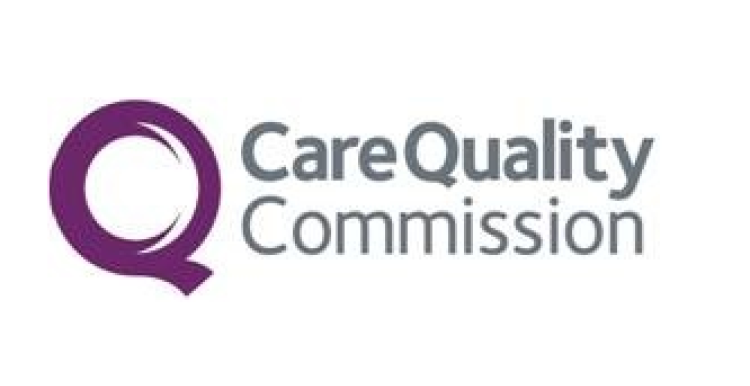CQC publishes reports following inspections at Greater Manchester Mental Health NHS Foundation Trust

A separate, focused follow up inspection of how safe wards for older people with mental health needs was carried out in April. Inspectors visited Greenway ward and three wards at Woodlands hospital.
Greater Manchester Mental Health NHS Foundation Trust provides community-based and inpatient mental health care and treatment to a population of over 1.2 million people living in Wigan, Salford, Bolton, Trafford and Manchester. The trust supports more than 80,000 people across their local, specialist, substance misuse and secure accommodation and prison populations.
The trust was placed into segment four of the NHS oversight framework in November 2022 which meant it entered the national Recovery Support Programme and has been receiving mandated intensive support. In the same month, NHS England announced they would be commissioning an independent review into the trust. The review will focus primarily on the Edenfield Centre, as well as the trust’s other secure services, and will include a review of ward to board escalation, and oversight of people’s safety as well as the culture.
The inspections undertaken were:
- January to March - an unannounced inspection was carried out to follow up on the previous inspection where warning notices were issued due to safety concerns. Inspectors visited the following areas: acute wards for adults of working age and psychiatric intensive care units (PICU), forensic inpatients/secure wards and community mental health services for adults of working age. The overall rating for community-based mental health services of adults of working age remains requires improvement, forensic inpatient or secure wards have moved up from inadequate to requires improvement and the wards for adults of working age and PICU remains inadequate. Due to continued concerns found around ligature risks and fire safety not being effectively managed and mitigated, CQC issued the trust with another warning notice to focus their attention on rapidly making the necessary improvements to keep people safe.
- January to March - an announced inspection of the well-led key question for the trust overall was also carried out. The rating for well-led moved down from requires improvement to inadequate.
- April – a separate inspection for wards for older people with mental health problems was carried out to follow up on previous enforcement action. The overall rating for this service remains as requires improvement overall. Safe has gone up from inadequate to requires improvement.
The overall rating for the trust, as well as how well-led it is, has moved down from requires improvement to inadequate. Safety remains inadequate, effective, and responsive remain requires improvement and how caring the services are have moved down from good to requires improvement.
Ann Ford, CQC director of operations in the north, said:
“When we returned to Greater Manchester Mental Health NHS Foundation Trust, we saw a continuation of concerns regarding the safety of people which need to be addressed as a matter of urgency, and we were disappointed that areas of concern we’d highlighted at the last inspection still hadn’t improved.
“People continued to be cared for in some ward environments that weren’t safe despite us issuing a warning notice previously to focus the trust’s attention on improving this. There were ongoing issues with ligature risks, broken furniture and fittings, and poor safety audits in the acute wards for adults of working age and psychiatric intensive care units, which continued to put people at risk of harm.
“Our well-led inspection found a disconnect between leaders and what was happening on the front line which negatively impacted the provision and safety of each service. Leaders need to urgently improve their oversight of services so the necessary changes can be made in a timely manner, so people are safe and free from harm.
“A system improvement board was set up as part of the trust’s mandated recovery support programme. The board supported the trust to develop an improvement plan so we hope to see some positive changes at pace so people can receive the safe and appropriate care they deserve.
“We did also see some positive areas of care. For example, staff at all levels told us the culture had significantly improved over the past few months and felt they were now able to speak up and raise any concerns.
“At our separate inspection of wards for older people with mental health problems, we were pleased to see that previous areas of concern had improved and there were ongoing plans to continue with progress and sustain improvements.
“We also found improvements within the forensic wards where we previously identified concerns about the management of ligature risks and clinic rooms. There was an ongoing refurbishment plan to improve the ward environment and staff mitigated any risks to keep people safe.
“Due to our findings, we have served the trust with a warning notice so that they are clear about what changes must be made to improve people’s care and safety at pace. We will continue to monitor the service closely and will return to check on the progress.”
Inspectors found the following during this inspection:
- Risk issues and priorities were not always managed and acted upon by leaders in an effective or timely manner.
- The trust governance systems and processes did not ensure that all services provided safe and good quality care.
- Although there was some recognition of individual strengths in different leaders, there were significant concerns about leadership capacity and capability at board level.
- The incident reporting system was out of date meaning data couldn’t be easily analysed to identify themes or to improve performance.
- Whilst the trust had systems in place to identify learning from incidents, deaths and complaints; these were not always effective or delivered in a timely way, which delayed any required improvements to people’s care.
At wards for older people with mental health problems:
- Staff could not observe patients in all parts of the wards.
- There were potential ligature anchor points in the service. Staff knew about any potential ligature anchor points and mitigated the risks to keep patients safe.
- There were areas of good practice at Greenway ward including the use of comprehensive care plans, effective risk assessment and good medicines management.
- Managers made sure all bank and agency staff had a full induction and understood the service before starting their shift.
Both reports will be published on CQC’s website on Friday 21 July.


